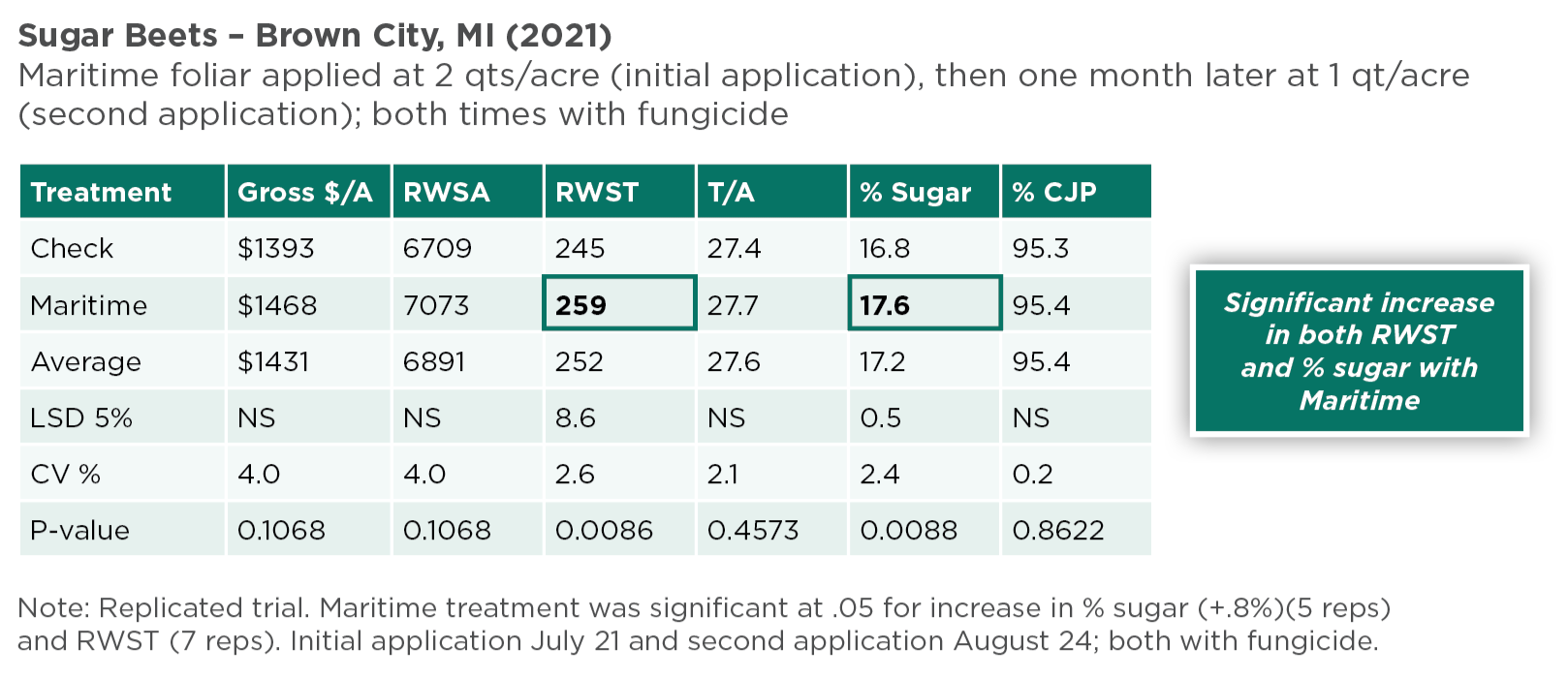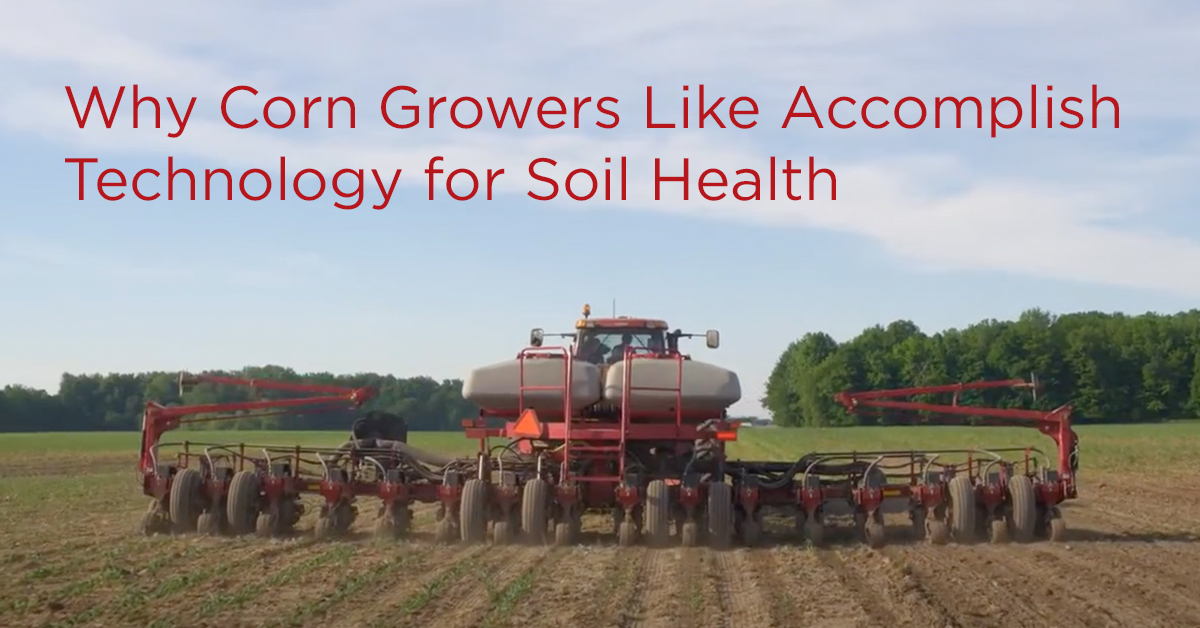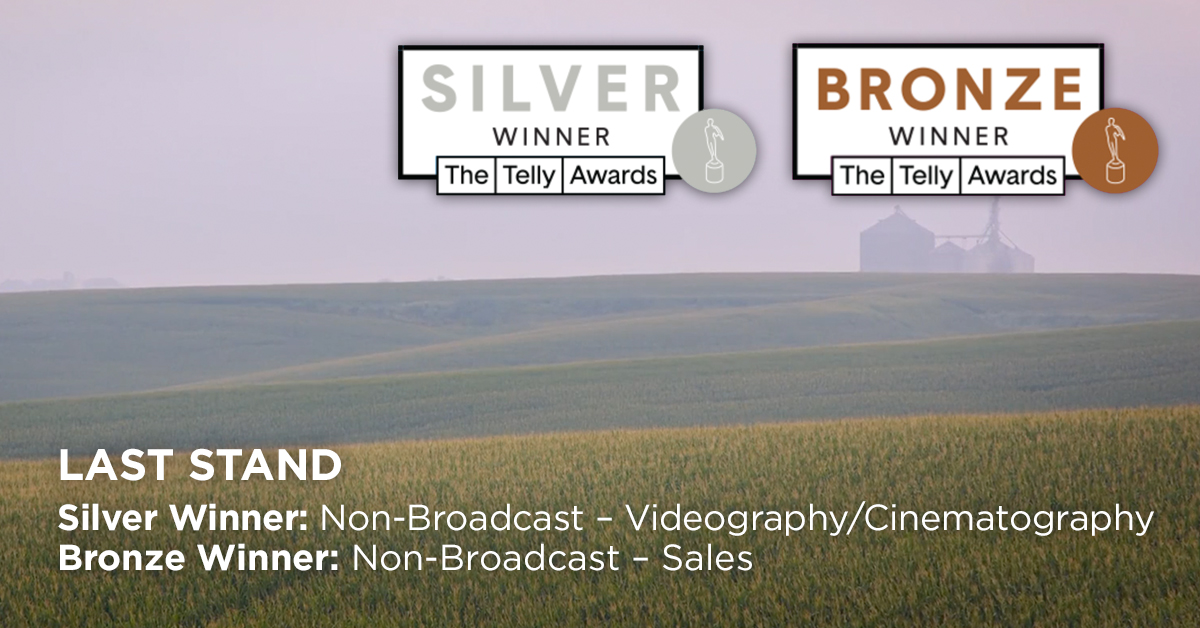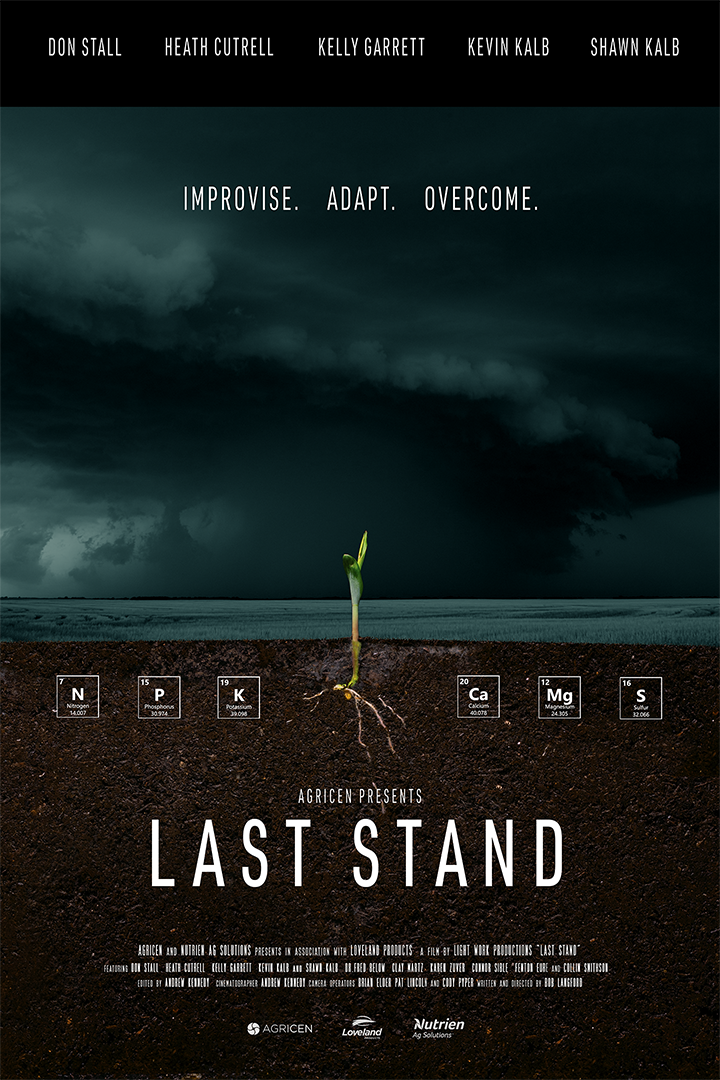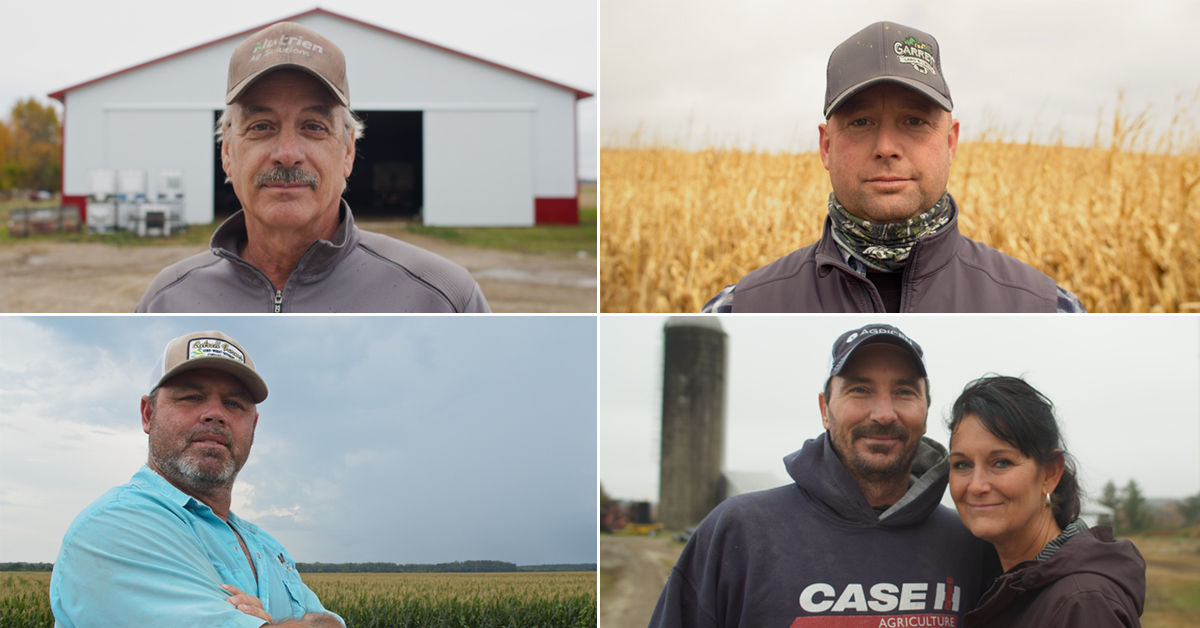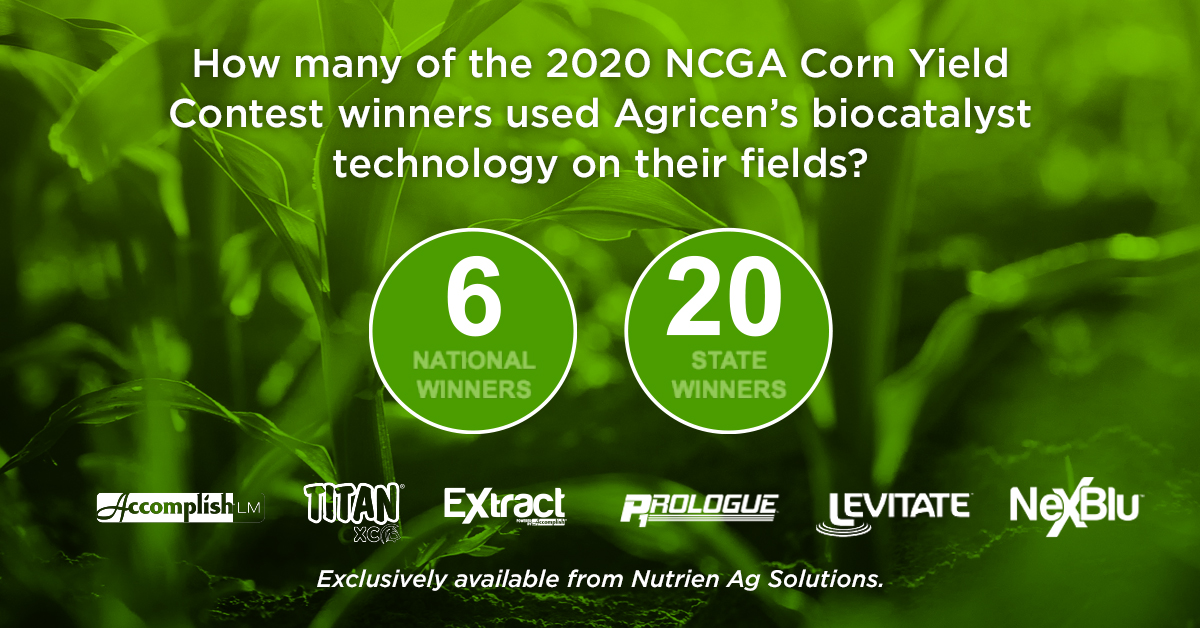Wheat growers commonly apply fungicides to their crops to optimize plant health and yield. Typical application timings include early April after the flag leaves emerge (Feekes growth stage 9) and at heading shortly after (head scab application/Feekes growth stage 10.5.1). TERRAMAR can be utilized in the same pass as a wheat fungicide during any application timing, offering another stress-fighting and yield-enhancing tool to optimize crop yield potential.
What benefits can TERRAMAR add to a wheat fungicide application?
- TERRAMAR minimizes the impact of weather-related stresses (e.g., cold and dry conditions) to help maintain normal physiological functions.
- TERRAMAR increases nutrient uptake and photosynthetic capacity at a critical time of yield determination.
Nutrien Ag Solutions has conducted multiple field trials in which TERRAMAR was applied at different stages of wheat growth with a fungicide. As seen in the examples below, consistent yield responses and a positive return on investment (ROI)* were observed across the different timings, whether one or multiple applications of TERRAMAR were made with the grower’s standard practice (GSP).
FLAG LEAF/FEEKES 9 FUNGICIDE APPLICATION
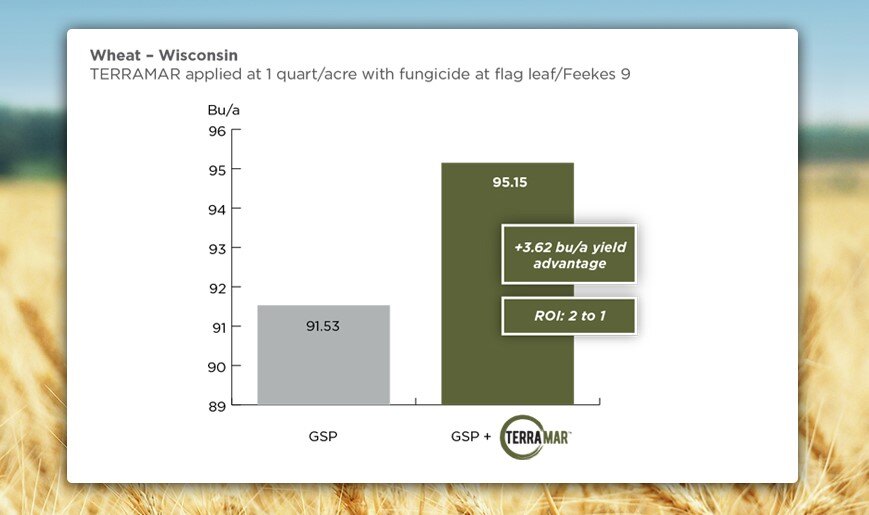
In a Wisconsin field trial, TERRAMAR was applied at 1 quart/acre with fungicide at the Feekes 9 growth stage (flag leaf). The addition of TERRAMAR to the grower's standard wheat fungicide program led to a +3.62 bu/a yield advantage compared to the fungicide alone, with an ROI of 2:1.
(If a flag leaf fungicide application is not being made, TERRAMAR is also compatible with herbicide applications made at Feekes 8.)
HEAD SCAB SPRAY/FEEKES 10.5.1 FUNGICIDE APPLICATION
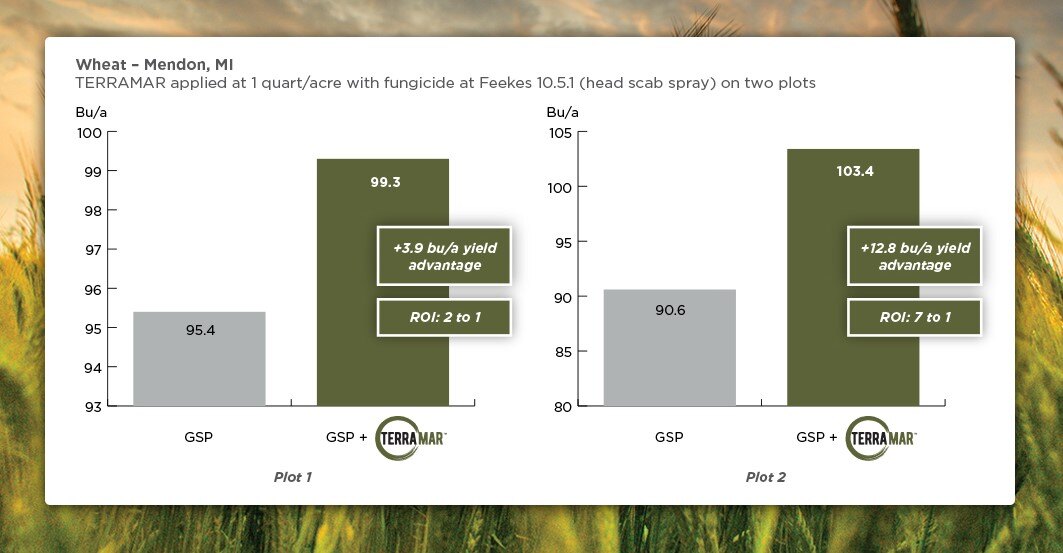
In a field trial in Michigan, adding TERRAMAR to the grower's head scab fungicide application led to a yield advantage that ranged from +3/9 bu/a (Plot 1, ROI of 2:1) to +12.8 bu/a (Plot 2, ROI of 7:1).
In an Indiana trial, the yield advantage when TERRAMAR was applied with a wheat head scab fungicide was +9.41 bu/a, with an ROI of 5:1 compared to the fungicide alone.
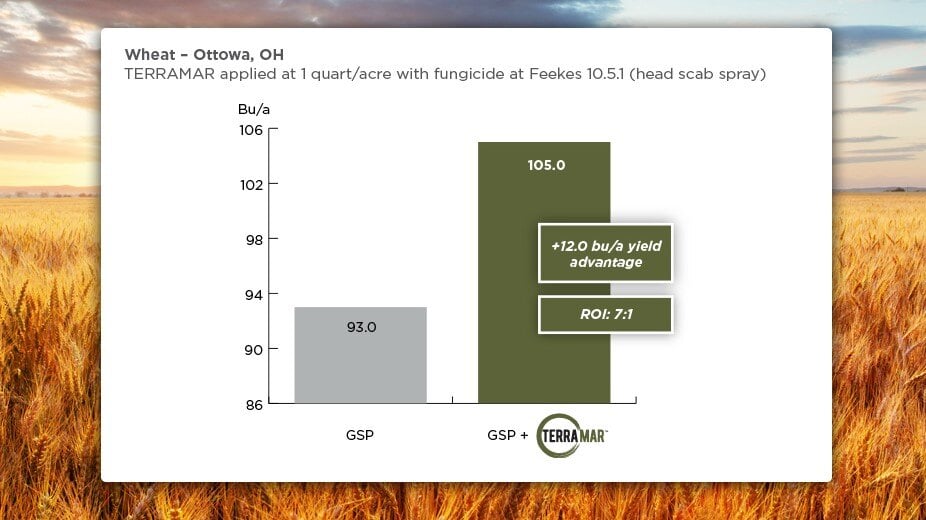
In Ohio, a yield advantage of +12.0 bu/a was seen when TERRAMAR was added to a wheat head scab fungicide application, with an ROI of 7:1 compared to the fungicide alone.
FEEKES 8, 9 & 10.5.1 (3 APPLICATIONS)
Lastly, a Pennsylvania field trial in wheat showed an +18.0 bu/a yield advantage when TERRAMAR was applied at 1 pint/acre at three time points: First with herbicide at Feekes 8, and then with fungicides at Feekes 9 (flag leaf) and Feekes 10.5.1 (head scab spray). The ROI in this trial was 9:1.
SUMMARY
Whether applied to wheat or another row crop, a foliar application of TERRAMAR offers a flexible and cost-effective way to enhance plant health and improve yield.
*ROI calculations assume wheat at $6/bushel.
View more wheat results by downloading the TERRAMAR Midwest wheat study.





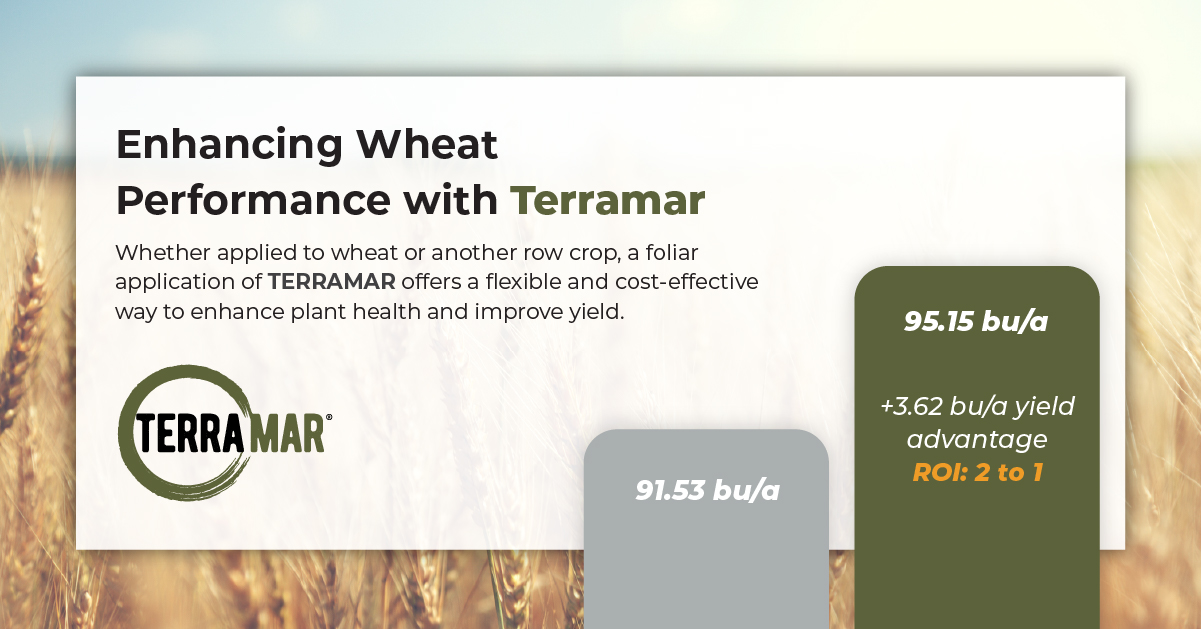
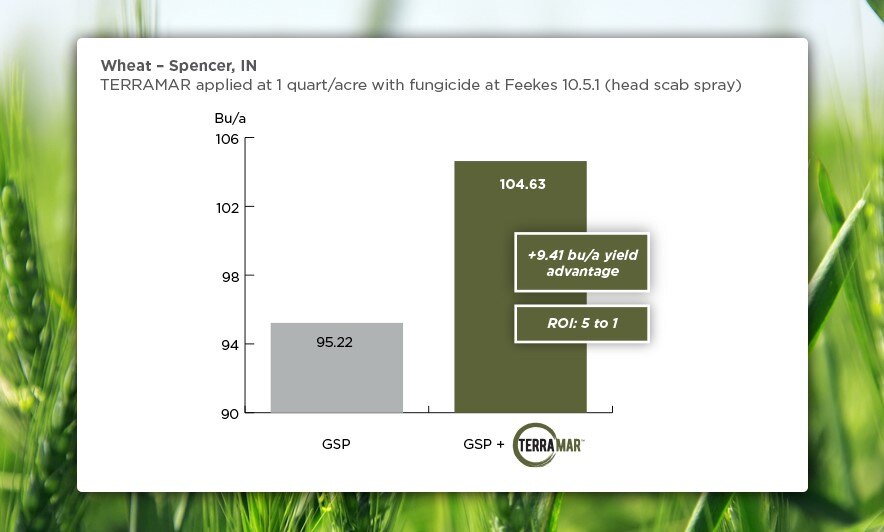
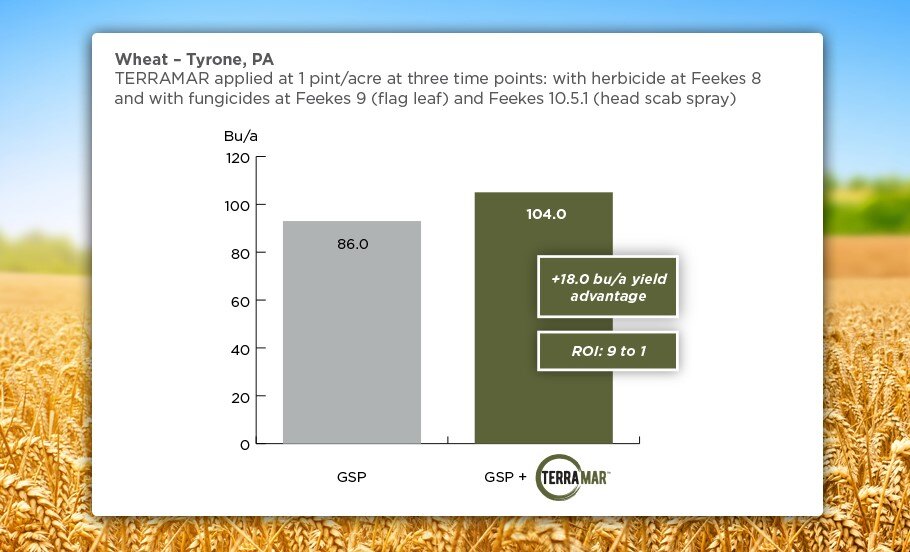

![[Corn Trial] Lower Canopy Temperatures & Greater Nutrient Uptake with TERRAMAR](https://www.agricen.com/hubfs/Terramar-tissue-samples-1200px.jpg)
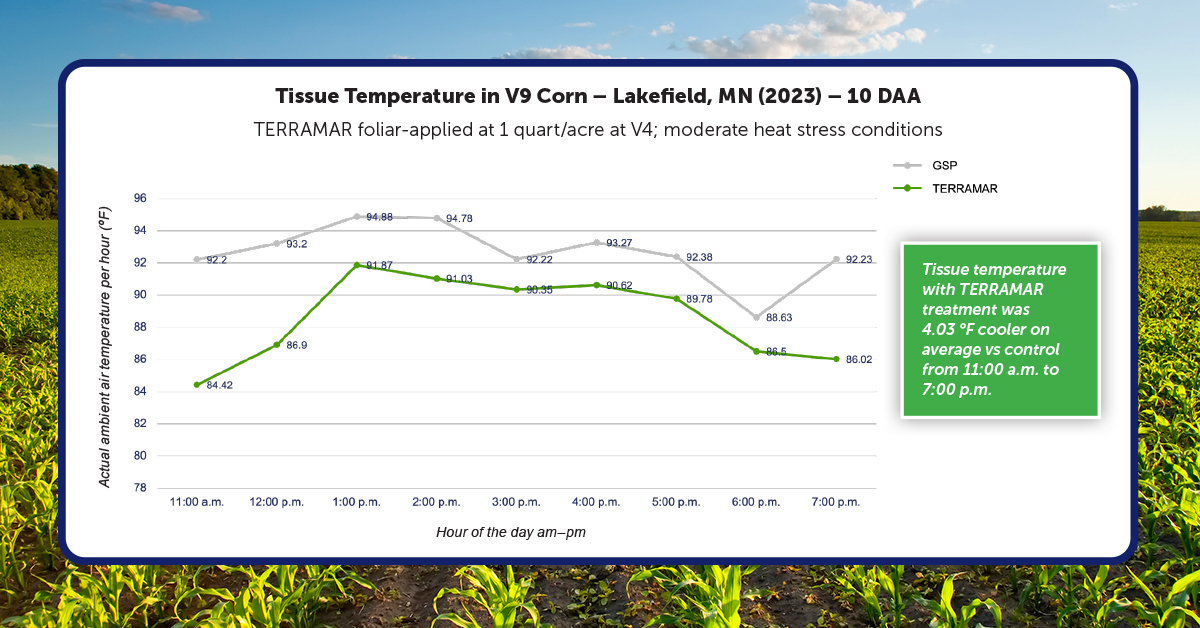

![[Interview] Addressing Weather-Induced Crop Stress](https://www.agricen.com/hubfs/Interview-weather-stress.jpg)
 As growers finish putting this year’s crop in the ground, Agricen’s Scott Lay spoke with WITY Radio’s Dennis Michelsen about
As growers finish putting this year’s crop in the ground, Agricen’s Scott Lay spoke with WITY Radio’s Dennis Michelsen about ![[Trial] Impressive Yield Results with ACCOMPLISH MAX in Irrigated Corn](https://www.agricen.com/hubfs/MAX-irrigated-corn-1200px.jpg)
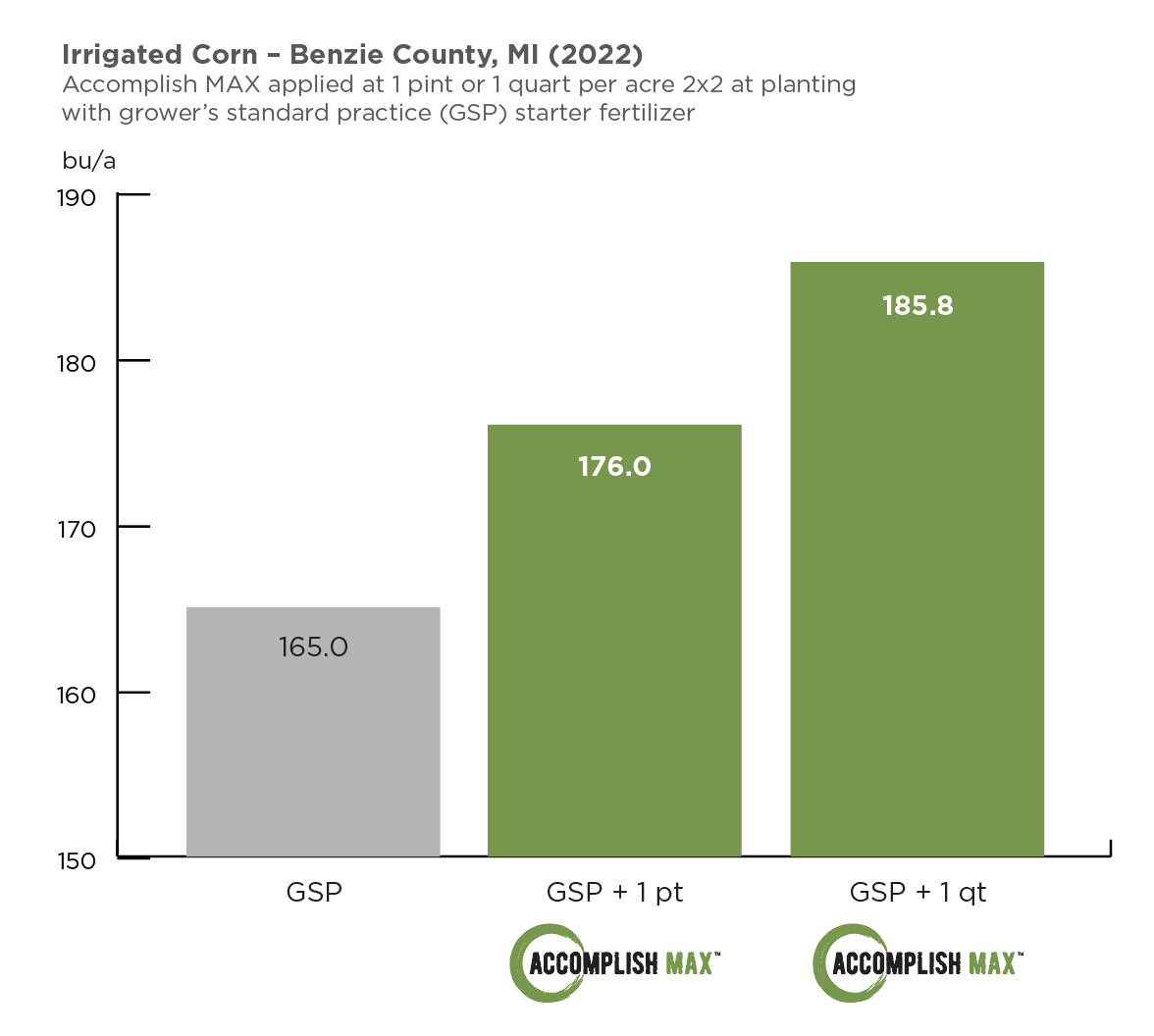

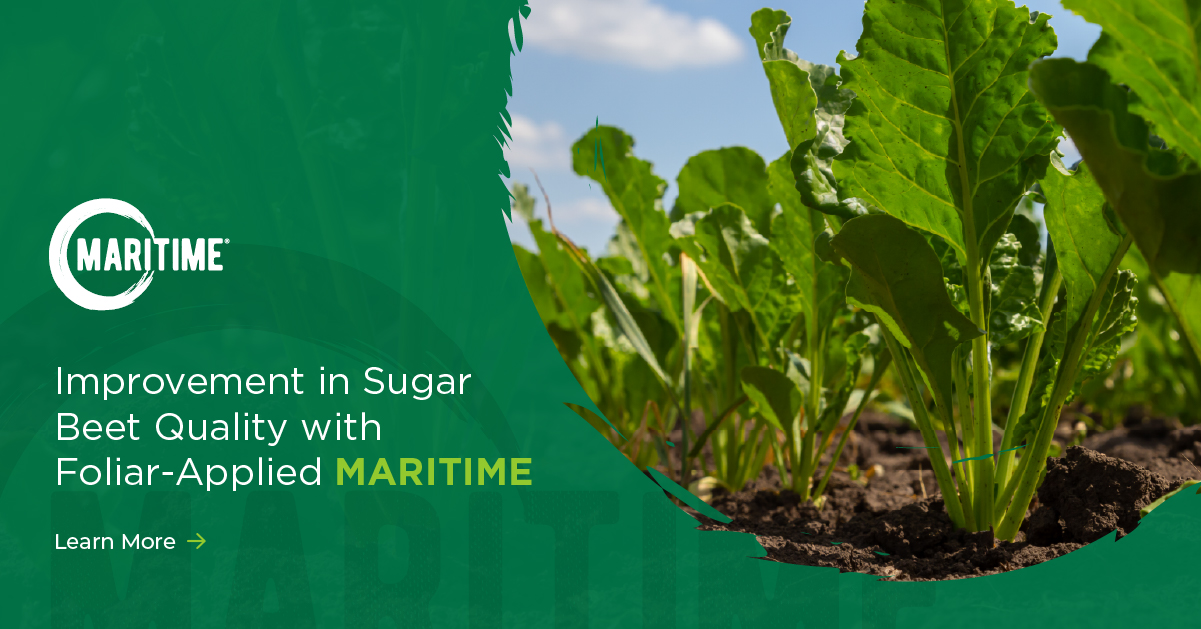
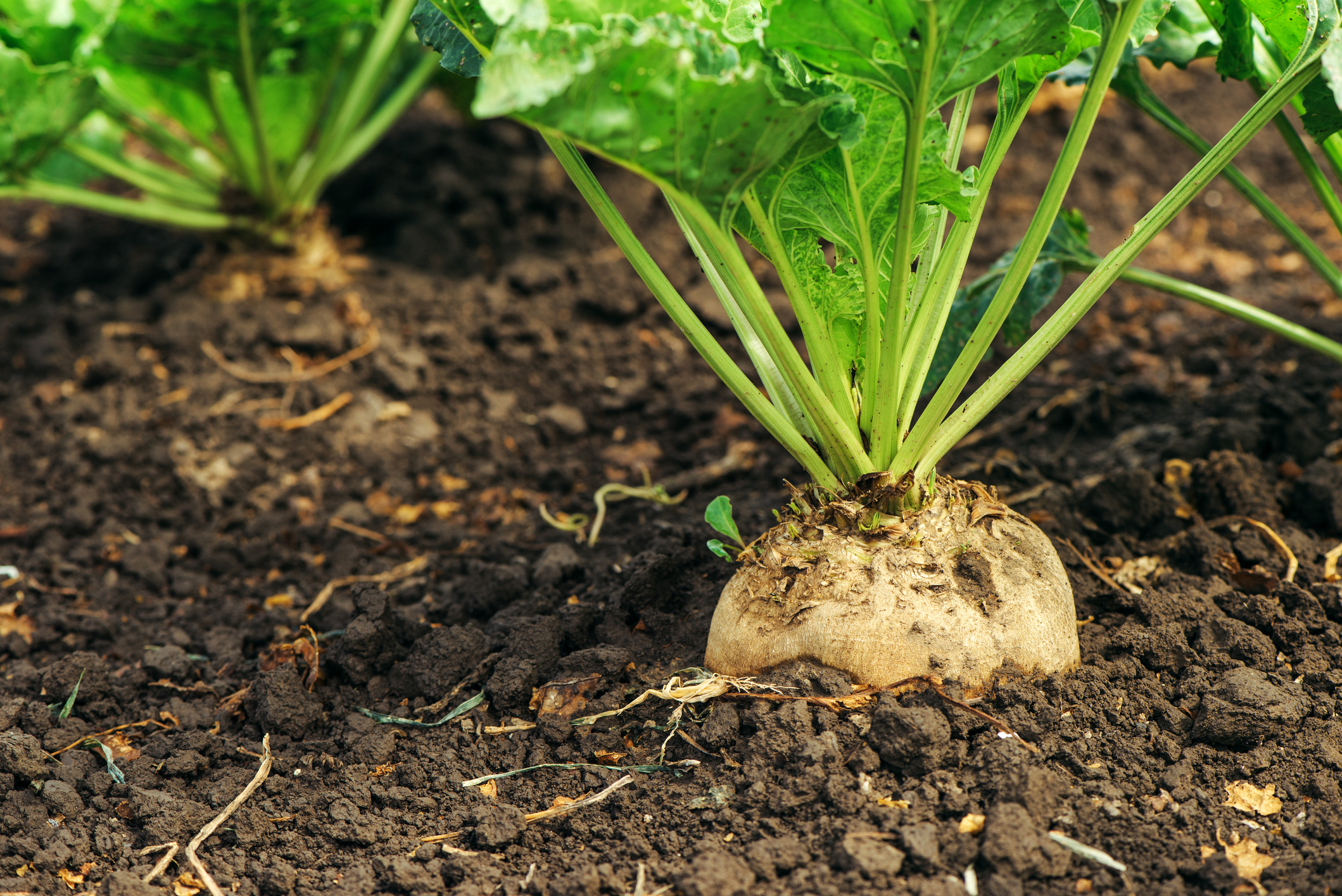 Sugar beets are a major source of the world's sugar, and the higher the sugar yield and concentration per plant, the better. In a replicated trial, researchers evaluated the ability of
Sugar beets are a major source of the world's sugar, and the higher the sugar yield and concentration per plant, the better. In a replicated trial, researchers evaluated the ability of 